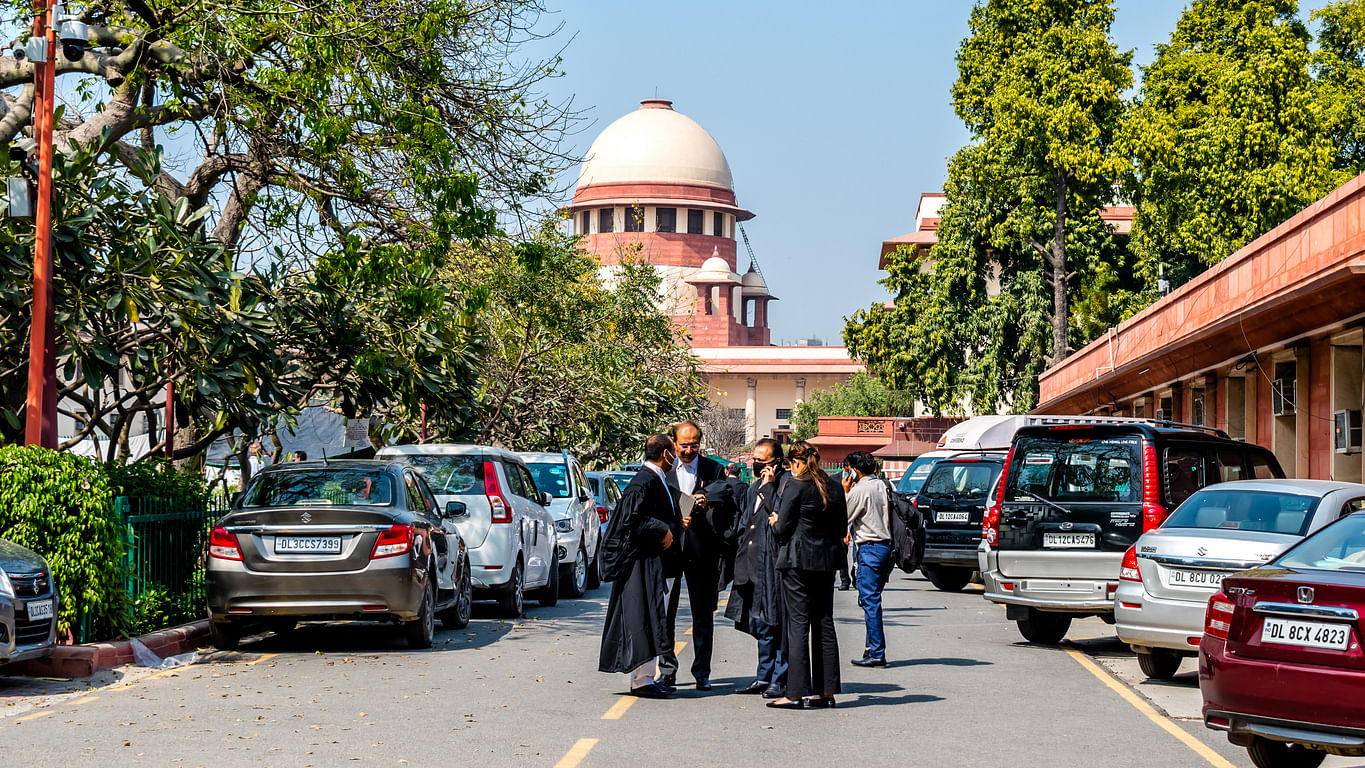
Lawyers in front of Supreme Court of India.
Credit: iStock Photo
New Delhi: The Supreme Court has said the fundamental purpose of bail is to ensure the accused's presence during the investigation and trial so any conditions imposed must be reasonable and directly related to this objective.
The top court set aside a Madhya Pradesh High Court's judgment which directed the accused to remove a wall at their expense and also the State government to hand over the possession of the disputed property to the complainant.
A bench of Justices C T Ravikumar and Sandeep Mehta said that the court's discretion in imposing conditions for bail must be guided by the need to facilitate the administration of justice, secure the accused's presence, and prevent the misuse of liberty to impede the investigation or obstruct justice.
Dealing with a plea by appellants Ramratan alias Ramswaroop and another person, questioning the conditions for their bail, the bench said, "The High Court has clearly exceeded its jurisdiction by imposing the conditions of demolishing the wall at the expense of the appellants and handing over the possession of the disputed property to the complainant."
"Under no circumstances, can the police be allowed to interfere with the possession of immovable property," the court said in its order on October 25.
In this case, the bench said, the conditions imposed clearly tantamount to deprivation of civil rights, rather than measures to ensure the accused's presence during trial.
The court also described as total lawlessness by the police in taking possession of immovable property here.
In an FIR related to assault and forceful entrance into the property of the complainant, the appellants-accused were arrested on April 27, 2024.
They said that the conditions imposed by the High Court are excessive and beyond the scope of bail proceedings.
They said the High Court exceeded its jurisdiction under Section 437(3) and Section 439 of the Code of Criminal Procedure, 1973 by imposing onerous conditions that goes beyond ensuring the presence of the accused during investigation and trial.
They also submitted that the High Court's order to hand over the keys of the disputed property to the complainant has prejudiced the ongoing civil suit.
The complainant, on the other hand, contended the High Court was fully justified in imposing the conditions, since the appellants had forcibly broken into his premises, and caused injuries to him and his family members.
